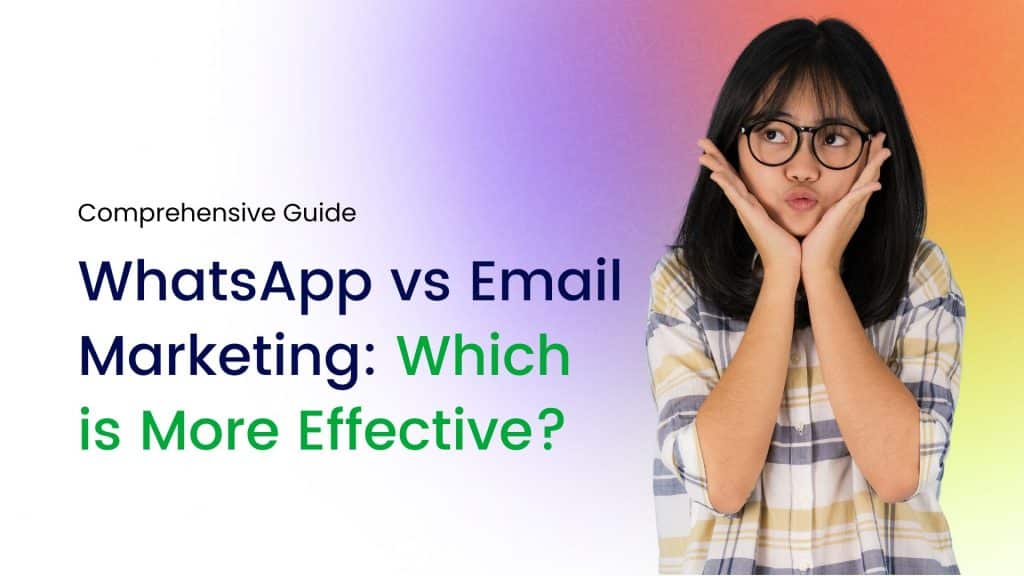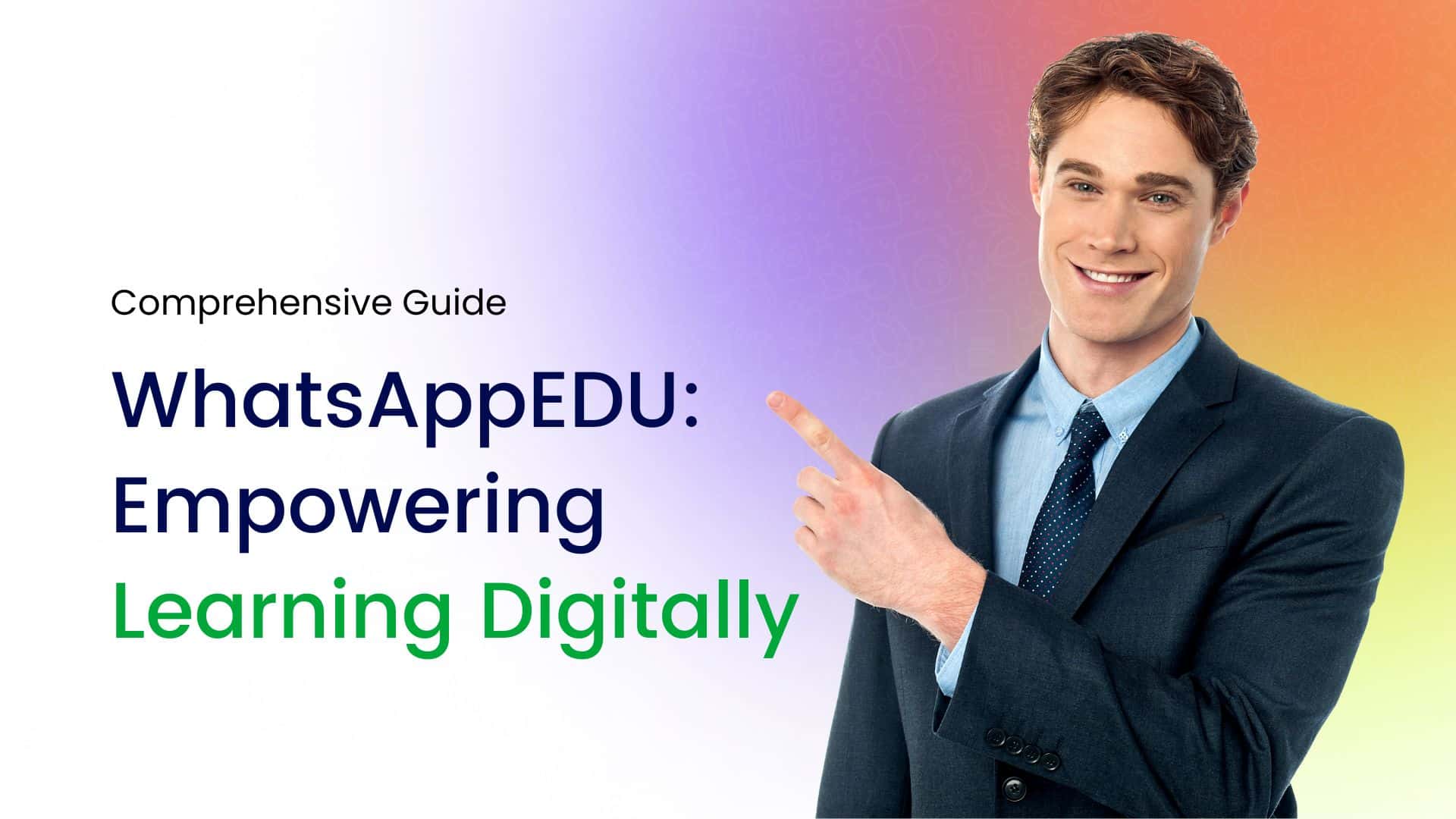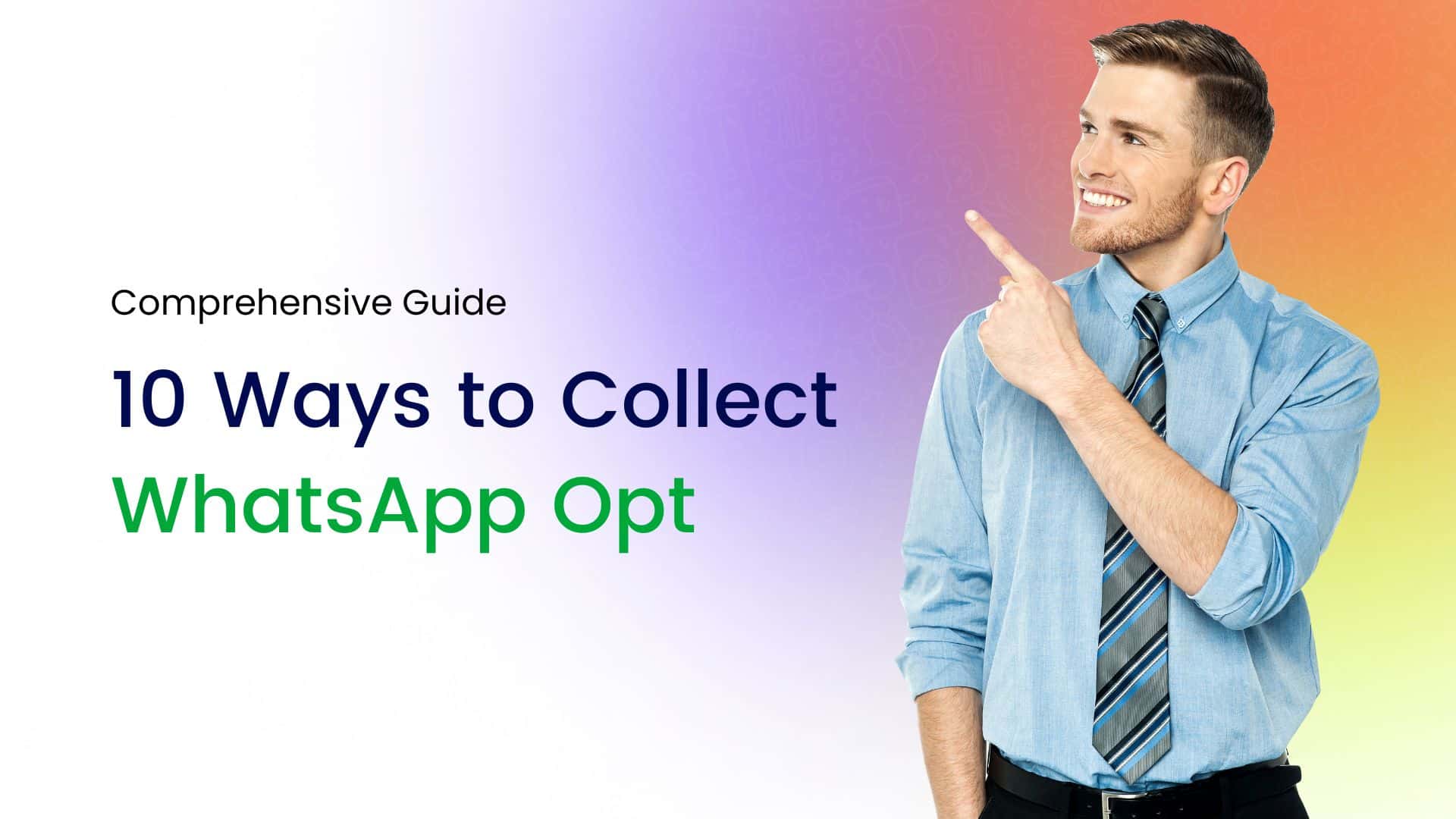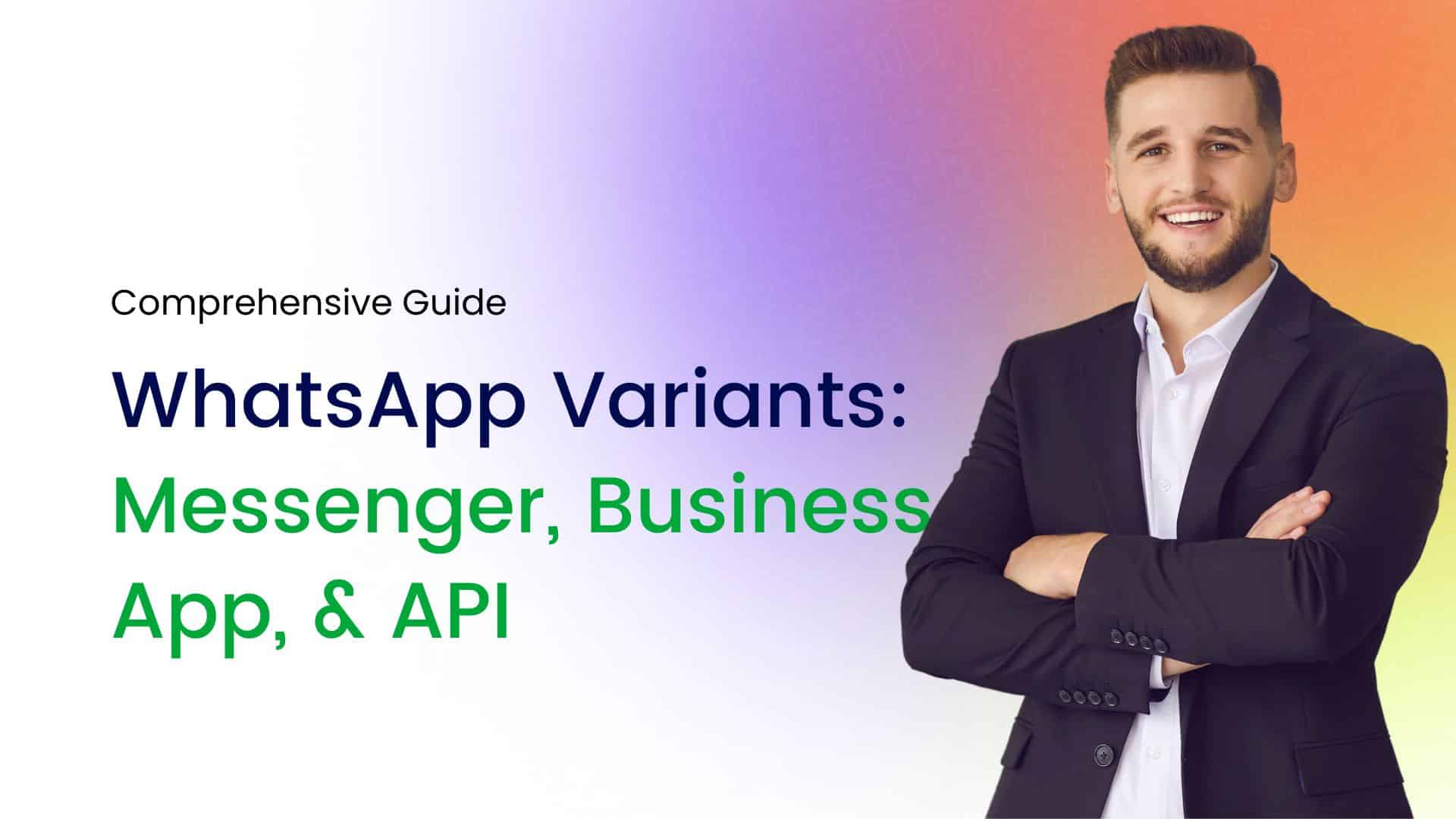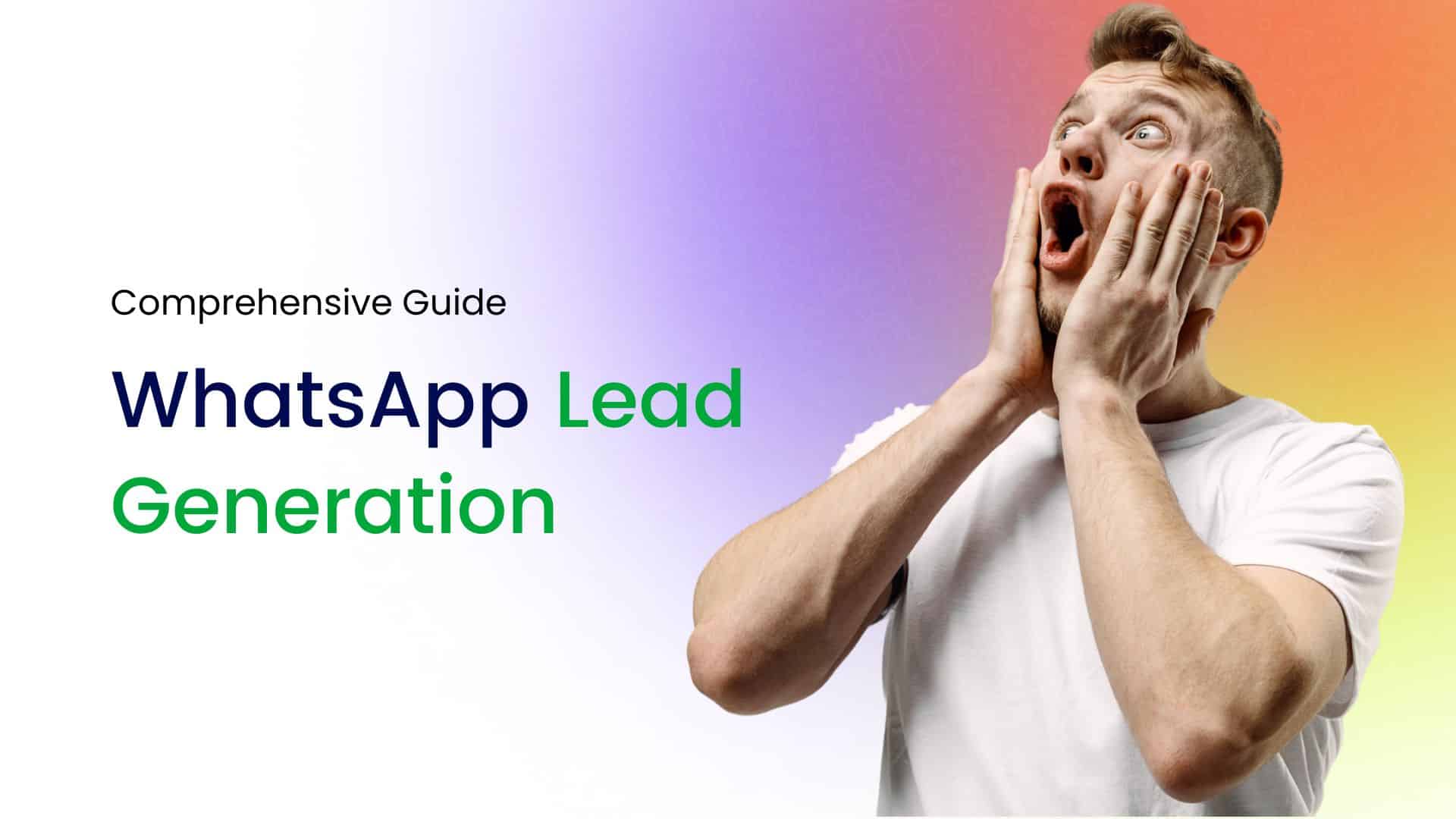In the digital age, communication is key for businesses striving to reach their target audience effectively. With the emergence of various communication channels, two prominent contenders have risen to the forefront: WhatsApp and Email Marketing. Both platforms offer unique advantages, but the question remains: which is more effective for businesses looking to engage with their customers?
WhatsApp and Email Marketing to determine which holds the upper hand in the realm of digital communication
WhatsApp: The Instant Connection
WhatsApp, with over 2 billion users worldwide, has become one of the most popular messaging platforms globally. Its instantaneous nature allows businesses to connect with their customers in real-time, fostering a sense of immediacy and accessibility. Here’s why WhatsApp is often touted as a powerful marketing tool:
- High Engagement: WhatsApp boasts impressive engagement rates, with messages typically being read within minutes of delivery. This immediacy facilitates swift communication between businesses and customers, enhancing customer satisfaction and loyalty.
- Personalization: WhatsApp enables businesses to send personalized messages tailored to individual customers. This personalized approach helps in forging stronger relationships and increasing customer retention rates.
- Multimedia Capabilities: Unlike traditional email marketing, WhatsApp supports various multimedia formats, including images, videos, and audio messages. This versatility allows businesses to convey their message more effectively, captivating the audience’s attention and increasing engagement.
- Opt-in Model: WhatsApp operates on an opt-in model, ensuring that recipients have consented to receive messages from businesses. This reduces the likelihood of messages being marked as spam and enhances the overall effectiveness of marketing campaigns.
However, despite its numerous advantages, WhatsApp does have limitations, particularly concerning scalability and automation. Managing large-scale marketing campaigns on WhatsApp can be challenging, as the platform lacks robust automation features, making it less suitable for businesses with extensive customer bases.
Email Marketing: The Time-Tested Strategy
Email marketing has long been a staple in the digital marketing arsenal, valued for its versatility, scalability, and measurability. Despite the emergence of newer communication channels, email marketing continues to thrive, offering several compelling benefits:
- Wide Reach: With an estimated 4.6 billion email users worldwide, email marketing provides businesses with a vast potential audience. This wide reach ensures that messages can reach customers across demographics and geographical locations.
- Automation: Email marketing platforms offer advanced automation features, allowing businesses to streamline their marketing efforts efficiently. Automated email sequences, personalized drip campaigns, and targeted segmentation contribute to enhanced efficiency and effectiveness.
- Measurable Results: Email marketing enables businesses to track various metrics, including open rates, click-through rates, and conversion rates. This data-driven approach empowers businesses to refine their strategies continually, optimizing campaign performance over time.
- Cost-Effectiveness: Compared to traditional marketing channels, email marketing is highly cost-effective, requiring minimal investment in comparison to the potential ROI. This makes it an attractive option for businesses operating on tight budgets.
While email marketing excels in many areas, it is not without its drawbacks. The primary challenge lies in overcoming inbox clutter and ensuring that marketing emails stand out amidst a sea of promotional messages. Additionally, email deliverability can be affected by spam filters and changes in email algorithms, necessitating constant adaptation and optimization.
Which is More Effective?
Ultimately, the effectiveness of WhatsApp versus email marketing depends on various factors, including the nature of the business, target audience demographics, and marketing objectives. While WhatsApp offers unparalleled immediacy and engagement, particularly for small-scale communication and customer support, email marketing excels in scalability, automation, and measurability, making it ideal for large-scale marketing campaigns and lead nurturing.
In many cases, the most effective approach involves leveraging both WhatsApp and email marketing in tandem, capitalizing on the strengths of each platform to create a comprehensive communication strategy. By integrating WhatsApp for real-time engagement and email marketing for long-term relationship building, businesses can maximize their reach and impact, effectively engaging with customers at every stage of the buyer’s journey.
Email Marketing: What It Is and Why It Matters
In today’s digital age, where social media platforms and search engines dominate marketing conversations, it’s easy to overlook one of the oldest and most effective forms of digital communication: email marketing. Despite its longevity, email marketing remains a cornerstone of successful marketing strategies for businesses of all sizes. So, what exactly is email marketing, and why does it continue to matter in the modern landscape of digital marketing?
Understanding Email Marketing
At its core, email marketing involves sending commercial messages to a group of people via email. These messages can take various forms, including newsletters, promotional offers, product announcements, and personalized communications. Unlike spam emails, which are unsolicited and often irrelevant to the recipient, email marketing relies on building and nurturing relationships with a targeted audience who has opted in to receive communications from a particular brand or business.
Email marketing campaigns typically leverage email automation tools to streamline the process of sending messages to subscribers. These tools enable businesses to segment their email lists based on various criteria such as demographics, purchase history, and engagement levels, allowing for highly targeted and personalized communication.
Why Email Marketing Matters
- Direct Communication Channel: Email provides a direct line of communication between businesses and their customers. Unlike social media platforms where algorithm changes can impact reach, email allows brands to deliver messages directly to their subscribers’ inboxes, ensuring greater visibility and control over the communication.
- High ROI: Email marketing consistently boasts one of the highest returns on investment (ROI) among digital marketing channels. According to studies, every dollar spent on email marketing yields an average return of $42, making it a cost-effective way to drive revenue and nurture customer relationships.
- Personalization and Segmentation: With advanced email marketing tools, businesses can segment their email lists and tailor content based on subscriber preferences, behavior, and demographics. Personalized emails are more likely to resonate with recipients, leading to higher engagement rates and conversion rates.
- Builds Customer Relationships: Effective email marketing goes beyond promotional content; it’s about building and nurturing relationships with customers. By delivering valuable and relevant content, such as educational resources, exclusive offers, and personalized recommendations, businesses can foster loyalty and trust among their subscribers.
- Drive Conversions at Every Stage of the Customer Journey: Whether it’s introducing new products, nurturing leads, or re-engaging dormant customers, email marketing can be tailored to address different stages of the customer journey. From welcome emails to cart abandonment reminders, strategically crafted email campaigns can guide subscribers through the sales funnel and drive conversions.
- Measurable Results: Email marketing provides valuable insights into campaign performance through metrics such as open rates, click-through rates, conversion rates, and subscriber engagement. By analyzing these metrics, businesses can refine their strategies, optimize content, and continually improve the effectiveness of their email campaigns.
WhatsApp Marketing: What It Is and Why It Matters
In the ever-evolving landscape of digital marketing, businesses are constantly seeking innovative ways to connect with their audience. One such avenue that has gained significant traction in recent years is WhatsApp Marketing. As one of the most popular messaging apps worldwide, WhatsApp presents a unique opportunity for businesses to engage with their customers directly and build meaningful relationships. In this article, we’ll delve into what WhatsApp Marketing entails, its benefits, and why it matters in today’s marketing strategies.
Understanding WhatsApp Marketing
WhatsApp Marketing involves utilizing the WhatsApp platform to reach out to customers, promote products or services, provide customer support, and build brand loyalty. Unlike traditional forms of marketing, such as email or social media, WhatsApp offers a more personalized and immediate communication channel.
Businesses can leverage WhatsApp in various ways, including
- Broadcast Lists: Businesses can send messages, updates, and promotions to multiple recipients simultaneously using broadcast lists. This allows for targeted messaging while maintaining a personal touch.
- Customer Support: WhatsApp can serve as a convenient channel for customer inquiries, support requests, and issue resolution. Many businesses use WhatsApp Business API to streamline customer service processes and provide timely assistance.
- Transactional Messages: From order confirmations to delivery updates, businesses can send transactional messages to customers via WhatsApp, enhancing the overall customer experience.
- Promotional Campaigns: WhatsApp can be used to run promotional campaigns, offer exclusive deals, and conduct contests to engage customers and drive sales.
The Benefits of WhatsApp Marketing
- Direct and Personalized Communication: WhatsApp enables businesses to communicate with customers directly on a one-to-one basis, fostering a sense of intimacy and personalization.
- High Engagement Rates: Compared to traditional marketing channels, messages sent via WhatsApp tend to have higher open and response rates, making it an effective tool for reaching and engaging customers.
- Cost-Effective: WhatsApp Marketing can be a cost-effective alternative to traditional advertising channels, such as TV or print media. Businesses can reach a large audience with minimal investment.
- Rich Media Capabilities: WhatsApp supports various media formats, including text, images, videos, and documents, allowing businesses to create compelling content to engage their audience.
- Opt-in Model: Since WhatsApp is a permission-based platform, businesses can ensure that they are communicating with users who have opted to receive messages, leading to higher quality leads and increased trust.
Why WhatsApp Marketing Matters
- Global Reach: With over 2 billion active users worldwide, WhatsApp offers businesses an unparalleled reach across diverse demographics and geographic locations.
- Preferred Communication Channel: Many consumers prefer messaging apps like WhatsApp for communication due to their convenience and immediacy. By meeting customers where they are, businesses can enhance customer satisfaction and loyalty.
- Competitive Advantage: As WhatsApp Marketing is still relatively underutilized compared to other channels, businesses that embrace it early can gain a competitive edge and stand out in their industry.
- Data Privacy and Security: WhatsApp’s end-to-end encryption ensures that messages are secure and private, instilling confidence among users and protecting their sensitive information.
Email Vs WhatsApp Marketing
Email marketing and WhatsApp marketing are two distinct approaches to reaching and engaging with an audience in the digital realm. While both have their advantages and limitations, understanding the differences between them can help businesses determine which channel is best suited for their specific goals and target audience. Let’s compare Email and WhatsApp marketing across various factors:
Audience Reach and Size
- Email Marketing: Emails can reach a wide audience, but the size of the audience is limited to the number of subscribers on the email list. Building an email list takes time and effort, but it allows businesses to communicate with a potentially large number of people.
- WhatsApp Marketing: WhatsApp boasts over 2 billion active users worldwide, offering a vast potential audience. However, WhatsApp marketing requires users to opt-in to receive messages, limiting the audience to those who have willingly provided their contact information.
Engagement and Interaction
- Email Marketing: Emails offer a more formal and structured communication format, typically featuring text, images, links, and calls to action. While email open rates vary, engagement levels can be influenced by factors such as subject lines, content relevance, and timing.
- WhatsApp Marketing: WhatsApp provides a more immediate and interactive communication channel, allowing businesses to engage with customers in real-time through text, images, videos, and voice messages. WhatsApp messages often enjoy higher open and response rates due to the platform’s conversational nature.
Content Format and Rich Media
- Email Marketing: Emails support various content formats, including text, images, videos, and attachments. However, certain email clients may restrict the display of rich media content, affecting the overall user experience.
- WhatsApp Marketing: WhatsApp offers rich media capabilities, enabling businesses to send a wide range of content formats directly to users’ devices. This includes text, images, videos, documents, and even interactive elements such as polls and surveys, enhancing engagement and interactivity.
Compliance and Regulations
- Email Marketing: Email marketing is subject to strict regulations, such as the CAN-SPAM Act in the United States and the GDPR in Europe, which govern the collection, use, and protection of personal data. Businesses must ensure compliance with these regulations to avoid penalties.
- WhatsApp Marketing: WhatsApp has its own set of terms of service and guidelines that businesses must adhere to when using the platform for marketing purposes. Additionally, WhatsApp’s end-to-end encryption ensures the privacy and security of user communications, enhancing trust and confidentiality.
Cost and Resources
- Email Marketing: While email marketing platforms may incur subscription fees or charges based on the number of subscribers or emails sent, the overall cost of email marketing is relatively low compared to other channels. However, building and maintaining an engaged email list requires ongoing effort and resources.
- WhatsApp Marketing: WhatsApp itself is free to use, but businesses may incur costs when using WhatsApp Business API or third-party tools for marketing automation and integration. Additionally, managing WhatsApp marketing campaigns requires dedicated resources to create content, engage with customers, and analyze performance metrics.
Email Marketing vs WhatsApp Marketing: Which Is More Effective for Your Business?
Choosing between email marketing and WhatsApp marketing depends on various factors, including your business objectives, target audience, content strategy, and resources. Let’s compare both channels to help you determine which one may be more effective for your business:
Email Marketing
Pros
- Wide Reach: Email allows you to reach a large audience, especially if you have built a substantial email list.
- Structured Content: Emails support various content formats, including text, images, videos, and attachments, allowing for versatile messaging.
- Automation: Email marketing platforms offer automation features, such as drip campaigns and personalized workflows, to streamline communication and nurture leads.
- Analytics: Email platforms provide detailed analytics and reporting tools to track metrics like open rates, click-through rates, and conversions, enabling data-driven decision-making.
- Regulatory Compliance: Email marketing is subject to regulations such as CAN-SPAM Act (US) and GDPR (EU), ensuring compliance with data protection and privacy laws.
Cons
- Deliverability Challenges: Emails may end up in spam folders or be blocked by filters, affecting deliverability and open rates.
- Overcrowded Inbox: With the abundance of promotional emails, standing out in the inbox and capturing subscribers’ attention can be challenging.
- Opt-in Requirement: Building an email list requires users to opt in, which may take time and effort to grow.
- Formal Communication: Email tends to be a formal communication channel, which may not resonate well with all audiences, particularly younger demographics.
WhatsApp Marketing
Pros
- High Engagement: WhatsApp messages often enjoy higher open and response rates compared to email, thanks to the platform’s immediacy and conversational nature.
- Personalization: WhatsApp allows for personalized communication through one-on-one interactions, fostering a sense of intimacy and connection with customers.
- Rich Media Capabilities: WhatsApp supports various media formats, including text, images, videos, and documents, enhancing content diversity and interactivity.
- Real-Time Communication: Businesses can engage with customers in real-time, providing instant support, updates, and responses to inquiries.
- Opt-in Model: WhatsApp marketing relies on users opting in to receive messages, ensuring that communication is targeted and permission-based.
Cons
- Limited Reach: WhatsApp marketing requires users to have the app installed and opt in to receive messages, limiting the potential audience compared to email.
- Privacy Concerns: Businesses must respect users’ privacy and consent when using WhatsApp for marketing purposes, avoiding spammy or intrusive messages.
- Resource Intensive: Managing WhatsApp marketing campaigns requires dedicated resources to create content, engage with customers, and handle inquiries promptly.
- Regulatory Compliance: WhatsApp has its own terms of service and guidelines that businesses must adhere to, alongside applicable data protection and privacy regulations.
Conclusion
WhatsApp and email marketing are both valuable tools in the marketer’s toolbox, each offering distinct advantages and capabilities. By understanding the strengths and limitations of each platform and tailoring strategies to align with specific marketing objectives, businesses can leverage these communication channels to connect with their audience effectively and drive meaningful results.

